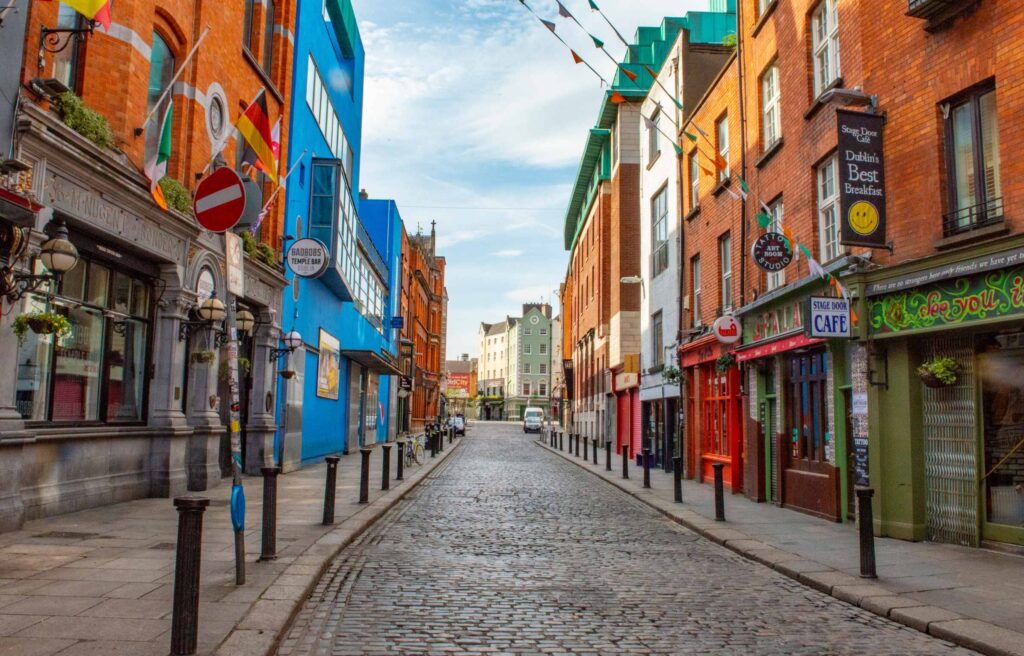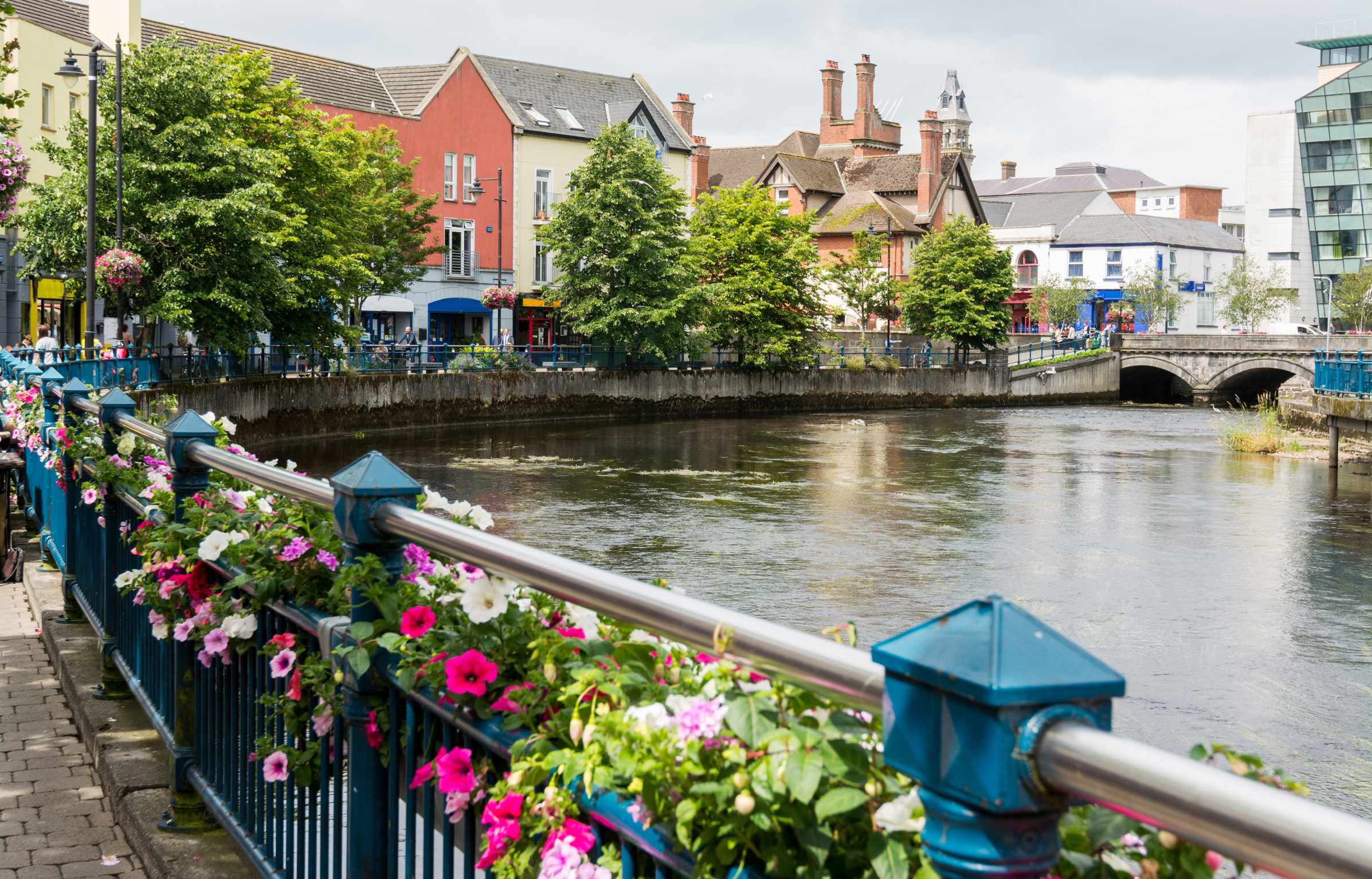Maeve O’Connell had not planned to leave Canada until her photography business reached a plateau. Then she read about an Irish town offering incentives for creatives to relocate. By July, she was walking the coast of Donegal, subsidized by a relocation program many have called Europe’s best-kept secret. Relocating internationally often raises serious concerns. Costs. Bureaucracy. Risk. The Ireland Free Relocate Program, backed by the Irish government, is removing those hurdles for skilled professionals, entrepreneurs, and students.
Ireland has a €500 billion economy. Its population now exceeds 5 million. Ireland draws global talent to strengthen rural economies.
Know this program before relocating to Ireland in 2026.
What Is the Ireland Free Relocate Program?
The Ireland program is backed by the government. It aims to attract skilled workers, students, and entrepreneurs globally. The program supports Ireland’s economy by attracting global talent. In addition, it opens new opportunities for skilled workers. It covers key sectors like tech, healthcare, education, and the arts.
Ireland’s unemployment rate is at just 4.2%. Ireland ranks 2nd in the EU for talent relocation.
Ireland hosts over 650,000 international residents. This reflects its welcoming, multicultural environment. Moreover, the scheme helps tackle labor shortages and grow the population. It focuses on rural and underserved areas. In addition, over €200 million is invested yearly to revive small towns.
“I moved to Leitrim through the program. Everything from visas to housing was smooth,” said Emily Carter, a designer from Melbourne.

Related – Relocating to Ireland from the US is made simple with these expert tips
How Does the Ireland Free Relocate Program Work?
It begins with a simple application, your skills, your work, and your plan. Then comes approval, followed by help with visas and flights. Next, you land with a roof over your head and a path forward. The process is straightforward, orderly, and designed to ease your first steps in Ireland.
For those planning to buy property, the First Home Scheme Ireland provides additional support for first-time buyers looking to purchase a new-build home.
First, job placement or business connections match people to their goals. For students, universities help with housing and learning support. Additionally, language classes and cultural guidance make the transition into Irish life easier.
The program succeeds by easing both logistical and emotional burdens.
What Are the Benefits of the Ireland Free Relocate Program?
This program offers key benefits for easier relocation. For example, it covers airfare, housing, and visa help. As a result, it lowers financial and logistical stress. Moreover, Ireland’s strong social systems add value. Notably, its healthcare ranks in the top 20 worldwide.
According to the Foundation for Research on Equal Opportunity, Ireland ranked #2 in the 2026 World Index of Healthcare Innovation. Similarly, its education system earns high marks in international rankings. Moreover, families are drawn to Ireland’s safety and vibrant cultural life. Together, its modern amenities and deep-rooted traditions create a well-balanced lifestyle.
As an EU member, the Ireland Free Relocate Program allows free movement across 27 countries. This opens major career and lifestyle opportunities. Moreover, entrepreneurs benefit from a 12.5% corporate tax rate. It’s one of the lowest in the EU.
“Ireland’s support gave me the confidence to expand my startup in Europe,” said James Walker, a fintech founder from Toronto.
Who Is Eligible for the Ireland Free Relocate Program in 2026?
The initiative primarily targets skilled professionals. Specifically, it focuses on high-demand sectors like technology, healthcare, engineering, and education. For example, Ireland’s ICT sector is growing at a rate of 10% annually. Meanwhile, healthcare faces a shortage of over 5,000 professionals, making skilled applicants highly sought after.
Applicants need relevant qualifications or entrepreneurial potential. Experience aligned with Ireland’s economic needs is key. Students are also welcome to apply for higher education. Ireland ranks in the top 10 globally and hosts 35,000+ international students.
The eligibility criteria often include –
- Age Restrictions – Applicants are typically between 18 and 55 years old.
- English Language Proficiency – A minimum IELTS score of 6.5 or equivalent is commonly required.
- Proof of Financial Stability – Applicants must show they can sustain themselves during the transition period, with suggested savings of €10,000 for individuals or €20,000 for families.
- Entrepreneurs – Business applicants must provide a detailed business plan, demonstrating the potential to create jobs and contribute to Ireland’s economy.
Entrepreneurs who want to start or grow a business in Ireland can get support. The country offers a €1 billion fund to help new companies in important industries.
These requirements ensure the program effectively achieves its financial goals. Moreover, it offers participants genuine opportunities to thrive in a country where the GDP per capita exceeds €100,000. In addition, the quality of life in Ireland is among the highest in Europe.
“I applied as a software engineer and found the process clear,” said Daniel Reed, a UK applicant accepted in early 2026.
Also read – Top Cities with Great Air Quality Index for Relocation
Is Healthcare in Ireland Affordable and Accessible?
Yes, healthcare is a cornerstone of Ireland’s social infrastructure, offering public and private services to ensure accessibility for all residents. Taxes fund the public healthcare system. It provides free or low-cost medical care to eligible residents, including general practitioner visits, hospital care, and maternity services.
According to OECD Health, public healthcare spending in Ireland is approximately €21 billion annually, with a per capita expenditure of about €4,500.
For those seeking private healthcare, Ireland boasts a wide range of private hospitals and clinics known for their high standards and shorter waiting times.
Health insurance is encouraged, with average costs ranging from €1,200 to €1,800 annually per individual, depending on the provider and coverage level. Participants of the Ireland Free Relocate Program often receive guidance on accessing and navigating the healthcare system, ensuring a smooth transition.
Here is a cost comparison table for healthcare in Ireland –
| Healthcare Service | Public Healthcare Cost | Private Healthcare Cost |
| General Practitioner Visit | €0–€60 (depending on eligibility) | €60–€80 per visit |
| Specialist Consultation | €0–€150 (depending on eligibility) | €150–€250 per consultation |
| Emergency Room Visit | €100 per visit (waived for certain cases) | €150–€300 per visit |
| Hospital Stay (Inpatient) | €80 per night (capped at €800/year) | €600–€2,000 per night (depending on facility) |
| Health Insurance (Annual) | Not applicable | €1,200–€1,800 per individual |
| Prescription Medication | €0–€114 per month (Drug Payment Scheme) | Full cost without insurance (varies) |
This setup offers public and private options. It suits different needs and budgets.
“I had surgery within two weeks of arriving through the program,” said Mark Ellis, a software developer from Vancouver.
What Makes Ireland’s Education System a Top Choice for Relocating Families?
Education in Ireland is a significant attraction for individuals and families relocating to the country. Home to some of Europe’s top universities, including Trinity College Dublin (ranked 98th globally by QS World University Rankings) and University College Dublin (ranked 181st globally), Ireland draws over 35,000 international students annually from more than 160 countries.
Residents in Ireland get free primary and secondary education. In addition, the government invests over €9 billion yearly in schools. The curriculum also builds creativity, critical thinking, and cultural awareness. This helps students succeed in the future.
For relocating families, the program gives access to 28 international schools. These include IB, British, and American-style options. Moreover, scholarships and grants help cut costs. Over €200 million is given yearly to support higher education.

Which High-Paying Jobs Are in Demand in Ireland Right Now?
Ireland’s dynamic economy offers a wealth of job opportunities for newcomers. The country’s low unemployment rate, which stood at approximately 4.5% in 2023, according to CSO Ireland, highlights its thriving job market. High-demand sectors include technology, healthcare, finance, and pharmaceuticals.
For example, the tech industry in Ireland continues to grow, with global giants like Google, Facebook, and Apple maintaining significant operations in the country.
According to Education in Ireland, the country hosts the European headquarters of over 1,000 top multinational companies. For example, tech giants like Google and Apple have major operations there. As a result, Ireland offers many high-paying job opportunities.
Healthcare professionals, including nurses and specialists, are in high demand due to the country’s expanding healthcare infrastructure. Financial services also provide abundant opportunities, with Dublin emerging as a significant European financial hub post-Brexit.
Here are some roles currently in high demand –
- Software Engineers – Average salary €60,000–€80,000 annually
- Data Scientists – Average salary €50,000–€70,000 annually
- Registered Nurses – Average salary €35,000–€50,000 annually
- Pharmaceutical Researchers – Average salary €45,000–€70,000 annually
- Financial Analysts – Average salary €40,000–€60,000 annually
“I moved from Toronto to Cork and doubled my salary,” said Aisha M. “Ireland’s job market is thriving.”
How Does Ireland Help Cover Your Relocation Expenses?
The program significantly reduces many upfront relocation expenses. For example, most participants receive assistance with airfare, visa fees, and short-term housing upon arrival. However, this initial support typically lasts only a few weeks. Therefore, individuals must plan for ongoing costs such as rent, utilities, and daily living.
Dublin, Ireland’s capital, is known for its higher cost of living, with average monthly expenses for a single person ranging from €1,800 to €2,200, excluding rent. However, in contrast, smaller towns and rural areas offer more affordable options.
For example, rent in Dublin is €1,500 to €2,000 per month. In contrast, smaller towns cost less. There, a one-bedroom may range from €800 to €1,200.
To compare the costs of living in Ireland’s cities, check Numbeo.

Could Life on an Irish Island Be Worth €92,000?
The Irish government is offering up to €84,000 to anyone bold enough to restore a vacant home on its remote offshore islands. An additional €20,000 grant is available specifically for refurbishment work. The “Our Living Islands” program welcomes both Irish citizens and international applicants who are interested in enhancing island life. To qualify, the property must be vacant and built before 1993.
It should be owned or nearly purchased. This 10-year initiative supports island communities by improving housing and broadband infrastructure. It also invests in local services and daily amenities.
“I never imagined I’d live on an island,” said Thomas L., a recent applicant from London. “But the grant made it real, and the peace here is something I didn’t know I needed.”
Application Process for the Ireland Free Relocate Program
First, the process requires careful preparation and clear steps. To start, you must complete an online application with your qualifications, work history, or business plans. Next, you need to upload supporting documents. These include academic certificates, proof of experience, financial records, and an ID like a passport. Altogether, these steps help ensure your application is complete and ready for review.
Once submitted, your Ireland Free Relocate Program application enters review. Next, authorities check if you meet all eligibility criteria. This step may take 4 to 8 weeks, depending on demand. Successful applicants get invited to an interview. These happen online or, in some cases, in person.
After the interview, applicants get approval or a request for more information. This step usually takes 2 to 6 weeks, based on their location.
Participants get help with housing, healthcare, and cultural orientation.
What Services Help Newcomers Settle Smoothly in Ireland?
Relocating to a new country involves cultural adjustment, building a social network, and navigating a new work environment, which can be daunting. Therefore, the Ireland Free Relocate Program addresses these challenges by providing integration services and support networks. For instance, participants can access language courses and cultural orientation programs to adapt to Irish customs.
Participants also receive job placement support to find work that matches their skills. In addition, they can join mentorship programs with experienced locals.
These mentors help newcomers navigate life and work in Ireland. As a result, the program builds strong community ties from day one.
“Having a mentor helped me settle quickly,” said Samuel T. “Ireland opens doors and walks with you.”

Recommended read – 10 Types of Relocation Assistance to Help You Move with Confidence
What Are the Challenges of Relocating to Ireland?
The application process is highly competitive, particularly in high-demand sectors such as technology and healthcare, where the number of applicants often exceeds the available spots. Moreover, visa processing delays and bureaucratic inefficiencies can further complicate the timeline, potentially disrupting relocation plans.
Additionally, the cost of living in Ireland, particularly in cities such as Dublin, Cork, and Galway, is among the highest in Europe. Rent for a one-bedroom apartment in Dublin averages around €1,800–€2,500 per month. Groceries, transport, and utilities also raise costs.
Ireland experiences frequent rainfall throughout the year. In winter, average temperatures drop to around 4°C (39°F), while summers stay mild at about 16°C (61°F). For those coming from warmer or drier regions, this can be a significant change. Moreover, adjusting to long, dark winters may affect both physical and mental well-being.
Helping You Every Step of the Way to Ireland
Relo.AI offers highly personalized relocation support for individuals and families with confirmed job offers in Ireland. Our services begin once employment is secured, allowing us to tailor your relocation based on your budget, timeline, and destination.
First, we help with the Ireland Free Relocate Program. Next, we help you find housing that suits your job and location. Then, our experts guide you through local rules and culture. Finally, we handle every step with clarity and care.
We also connect you with local resources, onboarding support, and integration programs so you feel confident settling into your new life.
A structured, step-by-step process ensures your move is smooth and stress-free, but it all starts with your job offer in place.
Have a confirmed job in Ireland?
Now is the time to plan your relocation. Book a session with us today.
Frequently Asked Questions (FAQ)
1. Are there community support networks for newcomers?
Yes, local groups offer social and professional support. Moreover, program networks help participants adjust to Irish life.
2. How do you apply for Irish citizenship after relocating?
After residing in Ireland for five years (or three years in some cases), participants can apply for naturalization to become Irish citizens.
3. Is childcare assistance available for families?
The Ireland Free Relocate Program offers subsidies and tax credits for childcare, ensuring affordability and access to high-quality services.
4. Is there a minimum income requirement for participants?
There’s no set income requirement. However, applicants should have €10,000 saved, or €20,000 for families.
5. Can students work part-time while studying in Ireland?
Yes, international students can work up to 20 hours per week during term time and full-time during holidays.
Bottom Line
The Ireland Free Relocate Program in 2026 is a great opportunity for individuals and families looking to start fresh in a welcoming, culturally rich country. The program reshapes people’s view of rural relocation by offering financial support, tax incentives, and affordable living. Its charm and opportunities await if you’re an entrepreneur, a skilled professional, or someone seeking a slower pace of life. To make the most of this initiative, ensure you meet the requirements and understand the regions involved.
Take the opportunity to become part of Ireland’s vibrant communities.











